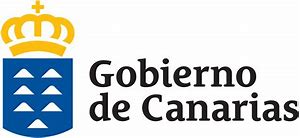We’re now three months into the new tax year and as usual, there is much work to do, taxes to file and legislation to plough through as we try to figure out what’s new in the business world in Spain. This time it is to do with IGIC (Impuesto General Indirecto Canario), the Canarian equivalent of VAT. Since we live on a small island in the middle of the Atlantic, we had to have some advantages, right? Well, one of those advantages is a reduced VAT rate so as opposed to countries on mainland Europe that may pay around 20% to 27%, in the Canaries, the general rate is 7%. Bear in mind, everything we have is imported so this is a massive deal!
Anyway, Law 7/2017, 27th December of the General Budget for the Canary Islands was approved and within it, new legislation that directly concerns business owners and their obligation to declare IGIC. Those sole-traders and professionals whose total volume of operations for the previous tax year did not exceed 30.000 euros (excluding IGIC), may be eligible to an IGIC exemption, meaning they would be excluded from this tax. If on the 1st January 2018, they find they meet the criteria, they must inform the Canarian Tax Office (Agencia Tributaria Canaria) of their wish to either be included or excluded in this special system before the 2nd April 2018.
To qualify for this exemption, the sole-trader or professional must be duly registered at the Canarian Tax Office as this will of course be verified and if it were discovered, they had not met said obligation, they would be automatically disqualified. However, even if the sole-trader or professional is entitled to this special system, they are not obligated to do so and may renounce their right. This means that if somebody registers a new business activity, they may renounce this exemption from the start or if we are talking about an existing business, by submitting their quarterly IGIC tax during the 1st Quarter 2018, it is understood they do not wish to be included in the special system. Take note though that if the exemption is renounced, they would not be able to apply for a minimum period of three years.
As mentioned, not everybody qualifies for this exemption and those sole-traders who exclusively carry out retail activities as per article 50 of Law 20/1991, 7th July cannot be included. Enquiries at the Canarian Tax Office reveal as well that those who are registered under the Módulo or Fixed-Tax Rate System would have to disclose their actual income based on their accounting books as opposed to their fixed quarterly declarations to determine whether they can be included in this system or not. Also excluded are those who are already registered under the Special Agriculture, Livestock and Fisheries System.
If a sole-trader or professional decides to be included in the exemption, their invoices would have to include the phrase, “exención franquicia fiscal” or Franchise Tax Exemption.
For further information on this tax, concerning your tax obligations or rights to be included, as always, I recommend you consult with your accountant. I’m writing this article on the final day of obligatory annual tax summaries so like me, I’m sure others will now be able to turn their attention back to other matters. The beginning of the year is always pretty manic with so many tax deadlines, but we’ve got Personal Income Tax to look forward to next. Good times!

As seen in The Voice Fuerteventura


